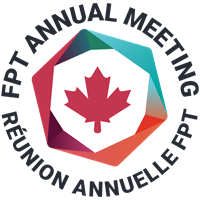Federal, provincial, territorial information and privacy commissioners and ombuds wrap up successful annual meeting

TORONTO, ON (October 10, 2024) – Today, federal, provincial, and territorial (FPT) information and privacy commissioners and ombuds concluded two days of productive discussions on privacy and access to information issues across Canada. The annual event, hosted this year by the Information and Privacy Commissioner of Ontario, was a significant opportunity to address key issues, enhance collaboration among jurisdictions, and reaffirm a shared commitment to protecting the access and privacy rights of all Canadians.
AI modernization and freedom of information
Participants discussed novel ways artificial intelligence (AI) can modernize government services, including freedom of information (FOI) processes, while ensuring the use of these emerging technologies is in alignment with privacy and ethical standards and principles.
Representatives from the Ministry of the Environment, Conservation and Parks shared valuable insights on some of the ministry’s recent initiatives to improve government services related to access to information.
The evolution of cabinet confidence under constitutional and administrative law
A distinguished panel featuring Paul Daly, Chair in Administrative Law and Governance at the University of Ottawa, Yan Campagnolo, Vice-Dean of the French Common Law Program at the University of Ottawa, and Vincent Kazmierski, Associate Professor at Carleton University, discussed cabinet confidence in Canada in light of recent constitutional and administrative law developments.
Privacy implications around the use of neurotechnology
Dr. Jennifer Chandler, Professor of Law at the University of Ottawa, delivered a presentation on the implications of neurotechnology for privacy and data protection. Her presentation addressed the ethical and legal challenges posed by advancements in neurotechnology and its application in various sectors, along with future policy options for governing this emerging technology.
First Nations concepts of privacy
Dr. Jonathan Dewar, Chief Executive Officer of the First Nations Information Governance Centre, delivered a compelling presentation on First Nations concepts of privacy and data sovereignty. The perspective he shared enriched discussions and broadened the commissioners’ understanding of collective rights and data sovereignty from First Nations viewpoints, opening the door to further potential collaboration with First Nations groups to advance reconciliation.
Youth privacy
A panel of teens and young adults from the IPC’s Youth Advisory Council engaged directly with FPT commissioners and ombuds to explore the need to protect the rights of Canada’s children and youth in the digital age. Moderated by Jane Bailey, Professor at the University of Ottawa, the panel provided firsthand insights into the challenges faced by youth in a digitally networked environment, emphasizing the importance of policies and educational programs to empower young people with the knowledge and tools to fully and safely participate in the digital world.
Legislative updates
The commissioners and ombuds discussed recent developments and anticipated changes to access and privacy laws across Canada, resulting in a comprehensive overview of the evolving legal landscape. This comparative exercise provided an insightful understanding of general trends and opportunities for legislative modernization.
“FPT discussions over the past two days confirm that our shared commitment to upholding the privacy and access rights of Canadians is stronger and more united than ever,” said Patricia Kosseim, Ontario's Information and Privacy Commissioner. “My office was pleased to host this year's FPT meeting, where we tackled some of the most pressing challenges of our times. By fostering collaboration and sharing insights, we are better equipped to ensure that the privacy and access rights of all Canadians are protected in an increasingly digital world. Together, we are more effective and impactful than any one of us can possibly be alone.”
Media Contact
For a quick response, kindly e-mail or phone us with details of your request such as media outlet, topic, and deadline:
Email: @email
Telephone: 416-326-3965
Social Media
The IPC maintains channels on LinkedIn, X (formerly Twitter), YouTube and Instagram in its efforts to communicate to Ontarians and others interested in privacy, access and related issues.